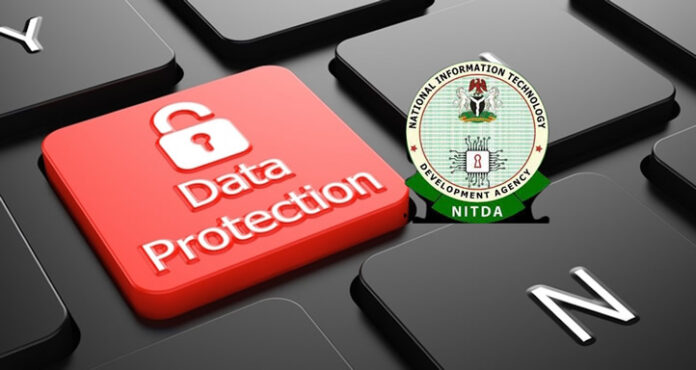How to protect your personal data online
TECHDIGEST – The world is becoming more concerned about the rate at which individuals, organisations and governments lose financial resources, intellectual property and personal identities to cybercriminals. The cost of cybercrime to the global economy will exceed any potential social and economic losses brought on by the COVID-19 pandemic, according to the World Economic Forum.
According to Kaspersky, Nigeria experienced 1.05 million cybercrimes in the second quarter of 2022, an increase of 174 per cent. Globally, Nigerians were the third-most victims of cyber attacks.
To stem the rising rate of cybercrime in the country, the National Assembly passed the Cybercrime Act in 2015. However, the legislation has not been able to address the unprecedented rate of cyber attacks in the country.
The rapid acceptance of digitalization across industries and enterprises brought about by the development of cutting-edge technology. Data has become increasingly valuable. The ever-increasing amount of private and sensitive information that is stored and transferred online makes it absolutely necessary to take precautions to safeguard your data from potential security breaches.
READ ALSO: Elon Musk regains ‘World’s Richest Person’ title
CISCO once predicted that the number of networked devices on earth will triple the number of humans by 2023, which will result in 60 per cent of all digital frauds occurring on mobile devices.
Hackers now have more avenues to breach people’s data due to the widespread usage of technology in daily life.
Notwithstanding the protections that organisations have put into place to protect their data, millions of people, individuals and businesses are still at risk of having their data compromised as a result of poor password practises, human error and other circumstances.
These are 5 frequent reasons for data breaches to help you understand how they occur.
Loss of device – Cybercriminals are quite calculative in their actions and can even take things like laptops, phones, storage devices, etc. from the unwary. Unencrypted data on stolen devices is easily accessible to thieves once they have access to them.
Human error – Humans are prone to making mistakes. A massive data breach might result from sending the wrong person a document, an email or a file. Human error has resulted in significant losses for businesses and people that have taken years to recover from.
Phishing – Phishing is one of the many methods hackers steal sensitive data. Phishing is a form of social engineering in which unknowing victims are tricked into doing a task that appears to be in their best interest by fraudulent emails or websites. Once these links are visited, hackers gain access to crucial data and can launch an attack.
Weak passwords – It is a normal habit for people to want to use the same password for various platforms; however, this is a horrible idea and one of the simplest ways for data breaches to occur. People also employ passwords that are easily guessed by hackers.
Read Also:
Spyware – Spyware is a type of malware created by cybercriminals with the express purpose of stealing data from victims without their knowledge or permission. Unknowingly, spyware can be downloaded from the internet and serve as a go-between for the hacker and the victim’s computer.
How to safeguard your data safe
To prevent a breach of data privacy, a comprehensive approach strategy that includes everyone who interacts with a system is essential. Every employee, every home gadget that interacts with a system, and every data breach can happen anywhere within a corporation.
Below are some best practices to tighten security and keep your data protected:
Use strong passwords
We have previously discussed how insecure passwords might allow hackers to access sensitive data. Using strong passwords with a variety of characters is crucial to developing good password habits. It is against best practices to protect your data to use the same password across many devices or platforms.
Two-factor authentication
When two-factor authentication is enabled for login screens, fraudsters must overcome an additional barrier to entry. Two-factor authentication may be turned on for most applications and major platforms, which greatly reduces the risk of a data breach.
Regular software updates
Patches and upgrades to software are crucial. Companies and developers regularly issue updates to their software to address security issues and close potential vulnerabilities. Both individuals and businesses should update their systems as quickly as possible to the newest versions.
Educate employees
Employees should be made aware of the dangers of social engineering attacks and how to protect themselves from them at all times. Organising training with the IT department can display examples of dubious emails or links to protect staff from becoming victims.
Back up data
Make regular backups of your data. Having a current backup of your data can help you retrieve your information and get back up and running fast in the event that your device is lost, stolen, or infected with malware. You should routinely make copies of your data and keep those copies in a safe place (such an external hard drive or cloud storage service) to avoid the risk of data loss or theft.
Data encryption
If devices are correctly encrypted, hackers would not be able to access the data even if they are stolen. Encrypting private data is crucial.
Use security software
Install a reliable firewall and anti-virus programme. Malware, viruses, and other security risks can be thwarted with the aid of antivirus and firewall software. Choose antivirus and firewall programmes with high ratings and user satisfaction and keep them up to date for maximum security.
After going through everything there is to know about data security and breaches, it is important you take deliberate steps to protect your data. The data of a company or an individual may cause great harm if it falls into the wrong hands. Around 110 organisations in Nigeria are under investigation for alleged data breaches, according to the Nigeria Data Protection Bureau.
You can keep your personal and sensitive information safe by adhering to these simple practices and helping to protect your data from security risks. Taking these precautions can considerably lower your risk of becoming a victim of cybercrime, even if no security measures are 100 per cent effective.




















